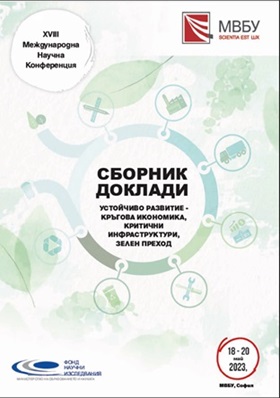Water in the circular economy: state of play in Bulgaria, Hungary, Romania and Slovenia
Water in the circular economy: state of play in Bulgaria, Hungary, Romania and Slovenia
Author(s): Spartak Keremidchiev
Subject(s): Economy, National Economy, Energy and Environmental Studies
Published by: Международно висше бизнес училище
Keywords: water recycling; water reuse; circular economy; East European countries
Summary/Abstract: The EC adopted the new circular economy action plan in March 2020 as one of the main building blocks of the European Green Deal. The expectations are that the EU’s transition to a circular economy will reduce pressure on natural resources and will create sustainable growth and jobs in EU countries. Water is at the core of sustainable development and is critical for socioeconomic development, energy and food production, as well as healthy ecosystems and the benefits they deliver to people. Water recycling and reuse as central to a circular economy approach is in a focus of this paper. Purpose: The paper deals with current situation of implementation of circular economy concept in the water sectors of the four countries. It aims not only to describe the state of play but the most important objective is to reveal what are the major gaps and how they can be filled by future research projects and programmes. Methods: The papers summarised results collected from four questionnaires filled by experts of investigated countries as well information and data from other studies and datasets of OECD, Eurostat and national sources. Findings and novelty: The study reveals only a few cases in the countries studied, relevant to the concept of circular economy and as well as niche markets in the four countries. The implementation of energy efficiency and non-revenue water reduction programs that have recovered the investments in a short period while saving water and energy and increasing the amount of people with access to services; the recovery of resources from wastewater and the creation of new revenue streams by using for own needs or selling energy, water, and fertilizers to cover operating costs; the application of circular economy principles to become carbon neutral, recover resources from water and preserve the environment; the assessment of the full potential of the existing infrastructure, resulting in huge savings in capital investments.
Book: Устойчиво развитие - Кръгова икономика, Критични инфраструктури, Зелен преход
- Page Range: 117-134
- Page Count: 18
- Publication Year: 2023
- Language: English
- Content File-PDF

